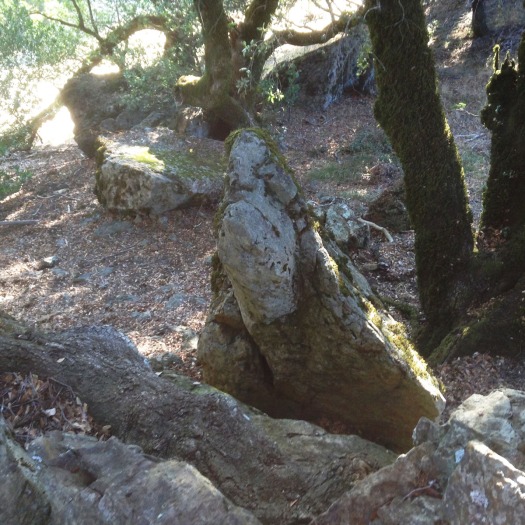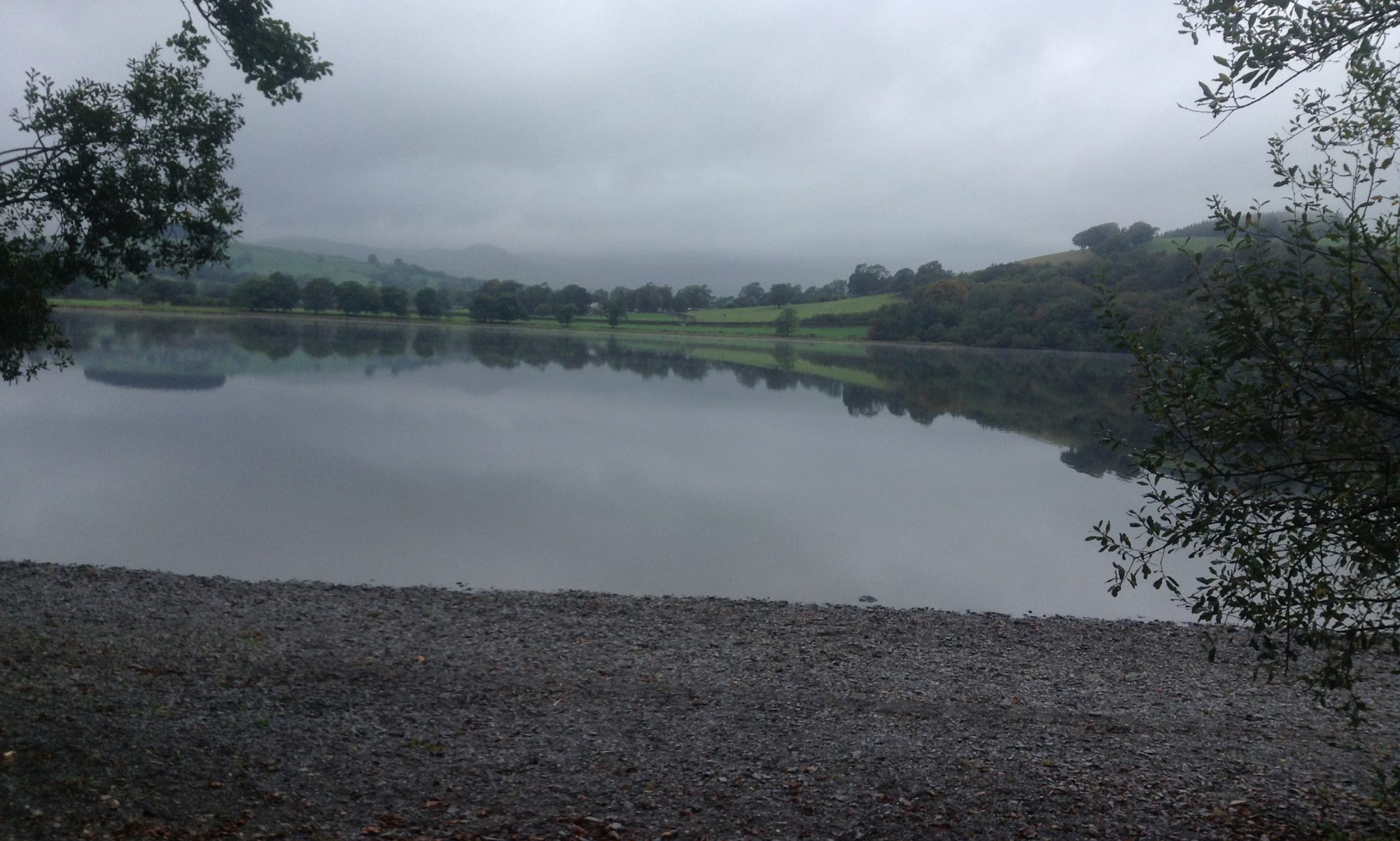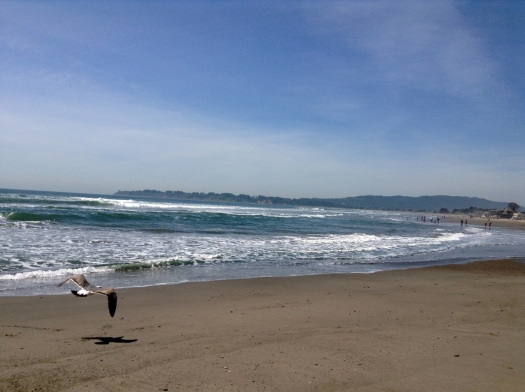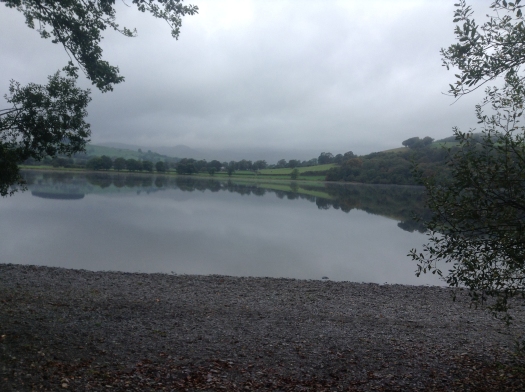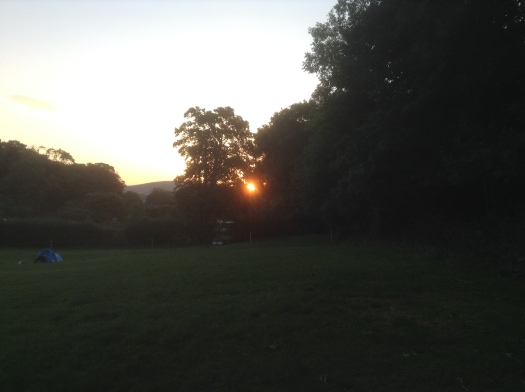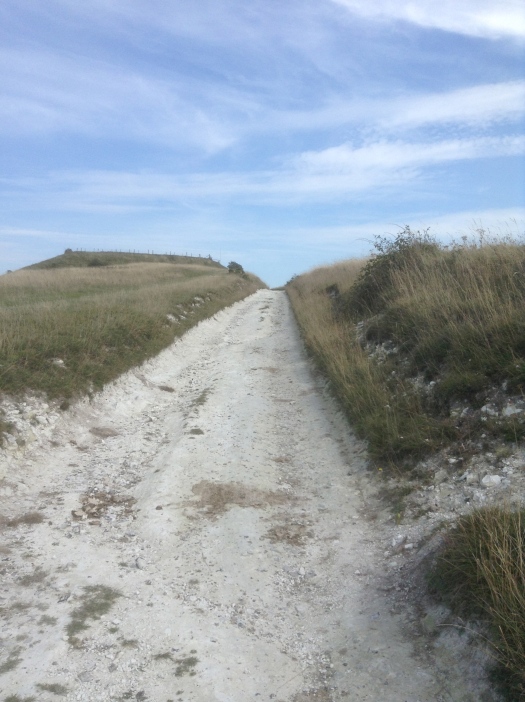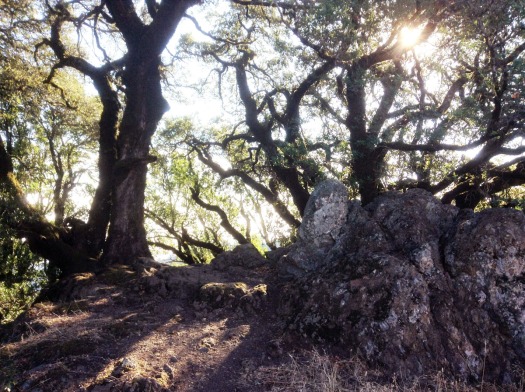
This morning I woke to Nimue Brown’s refreshing retake on The Burning Times. In true Bardic fashion, she did it in song.
I’ve had thoughts along these same lines—as a matter of fact, I was given a message to deliver on my return from Albion. Until I read this post I wasn’t sure how exactly to do it. I’m still not, but it has to be done. Samhain is the appropriate time, and by now I’ve processed the experience enough to be able to do it without the anger and fear it came to me in.
Mt. Tamalpais is the place I camp at most often because it is one of the wildest campgrounds I know that is easily accessible by public transit. The bus is going up the hill whether I’m on it or not, and the long trip was a chance to really look at my home as I passed from the concrete and glass of downtown San Francisco, the endless expanse of the Pacific as we crossed over the Golden Gate Bridge, and the wild beauty of Marin County. I needed to make a trip to my local sacred mountain on my return, before the green of Albion had faded and the gold of my native California looked normal again. It was a mile to Rock Springs and my usual stomping grounds, and I took my time getting there. The day was heating up and the trail is steep. I was standing in the grove of Douglas firs that was my first introduction to the mountain well before noon and it was there my revelations began. I got more than I bargained for.
Why was I up here all alone? I thought on the circle of friends that used to come here. So many are dead, so many more unwilling or unable to come here any more. It’s a long way up this mountain, even by car, and as we grew older, and fewer, more and more of us just didn’t find it worth the increasing effort. Lately, it’s been just me, my partner, and people we bring to see a wonder.
What of our new friends? Few of them are willing to make the journey. More and more of them have punishing schedules, or don’t see the point or expense of the journey when there are closer wildish spots to be visited. Many of them are sick as well, mentally, physically, or both.
This train of thought was growing increasingly depressing. I looked to my own actions. Why hadn’t I invited anyone up here with me today? If I was alone, surely I had something to do with that fact. I thought of all the invitations I’d issued, and how many had been declined. I thought of all the times the trips that had been made had been shortened because of discomfort, disinterest or illness on the part of my companions. I thought of the timing of this trip, and my recent trip to Albion. I’d come up here because after that experience I had a deep need to bring that time of magic and mystery back here, to my own sacred place. There was no one willing or able to make this trip with me now, when I needed to go. I was up here alone because the friends of my youth were unavailable, as are the friends in my present.
I couldn’t stay in the grove any longer. It was full of ghosts, and I wasn’t feeling too good myself. I walked back to Rock Springs, and then took the first trail that called to me. I felt like I had the flu, and wondered if the illness I’d fought back over the week before was returning. My throat was scratchy, and I was sneezing. I wasn’t really sick, I just felt unwell. I sucked on a cough drop and walked.
My first impulse was to go back down the hill, pack up my gear and go home. My first action was to get myself out of that grove, and I did, in fact, walk back down the trail towards camp. I needed to go to work in a couple of days, I couldn’t afford to be sick. Did the mountain call me to stay, or did I choose to do so on my own? Part of the decision was the fact that the first bus in a three hour journey wouldn’t be arriving for four more hours. Part was that I had paid my camping fee and I wouldn’t have another chance to come up here for a few weeks at least, and the rainy season, if it came, would be here soon. My connection with the land was stronger than my impulse to leave.
I stopped at the first lovely place that called to me, where the laurels grew among the rocks and I could see the whole north end of San Francisco Bay. Mt. Diablo, another sacred place, rose in the distance. The boats of Sausalito were specks on the water, and Angel Island was snugged up against Belvedere and Tiburon. First the shade of the grove was inviting, then the sun. I was still feeling sick, wasn’t sure if I was too hot or too cold but the puzzle of what was laurel and what was oak held my attention. The oaks are being ravaged by sudden oak death and the presence of laurel seals their fate, but I had never noticed just how similar the twists and turns of trunk and branch could be between the two different trees without the leaves to identify them.
I thought again about why I was up here all alone. Now, away from the grove, the rightness of this journey and this place finally came to me, and with it the realization of why that was. So many of us are too sick to be here. My bouncing back and forth was a symptom of the mental unrest, my uncomfortable breathing of the physical. I was feeling what the earth felt. As are we all.
As long as we keep doing the things that make the larger organism of which we are a part sick, we will continue to be sick too, in the larger sense. As long as we make excuses for doing the things we know will make us sicker the only changes that happen will be for the worse. There is no excuse. The cold laws of nature and the universe don’t care why we do the things that add to the illnesses we are creating and worsening by our behavior.
I’m not saying you yourself are making yourself sick. I’m saying that those of us who are are like the canaries in the coal mine. The numbers are going up as more and more of us, proportional to the population, develop cancer, diabetes, depression, and all the other illnesses that come from breathing bad air, eating poisoned food and drinking water laced with toxic residues. We can’t poison the insects and weeds that eat a proportion of our crops and not expect those poisons to march up the food web back to us.
We, collectively, are fouling our nest, making ourselves sick. With that sickness comes the natural urge to rest and recuperate, and so the separation is increased. We decline invitations, we let things go. We climb into the car, the ultimate means of separation from the Earth and each other and drive distances we can easily walk or take transit to. We don’t feel well. We need to rest. We need to take care of ourselves.
In my case, taking care of myself meant opening up and really listening. It meant carrying the message I was given. I’m not the only messenger, after all. Once I did that, I found my breathing easing and my restlessness as well. By late afternoon the fog began rolling in and I walked down the hill in the cool, damp evening. I built a fire and made a cup of tea, still feeling that planetary malaise, but glad I hadn’t cut the trip short after all. What good would it have done? It isn’t my sickness, but it is. I cannot cure it with rest or medicine, and I know that ignoring it will only make it worse. All I can do is deliver the message, listen to the world around me, and choose life. I still don’t know what that means, and make of this message what you will.
This is Samhain, the time to reflect on the dead and the year that is ending, or waning, depending on your personal spiritual calendar. We have all the tools to hand to heal ourselves and our planet. It’s up to each of us whether we choose life or death.
